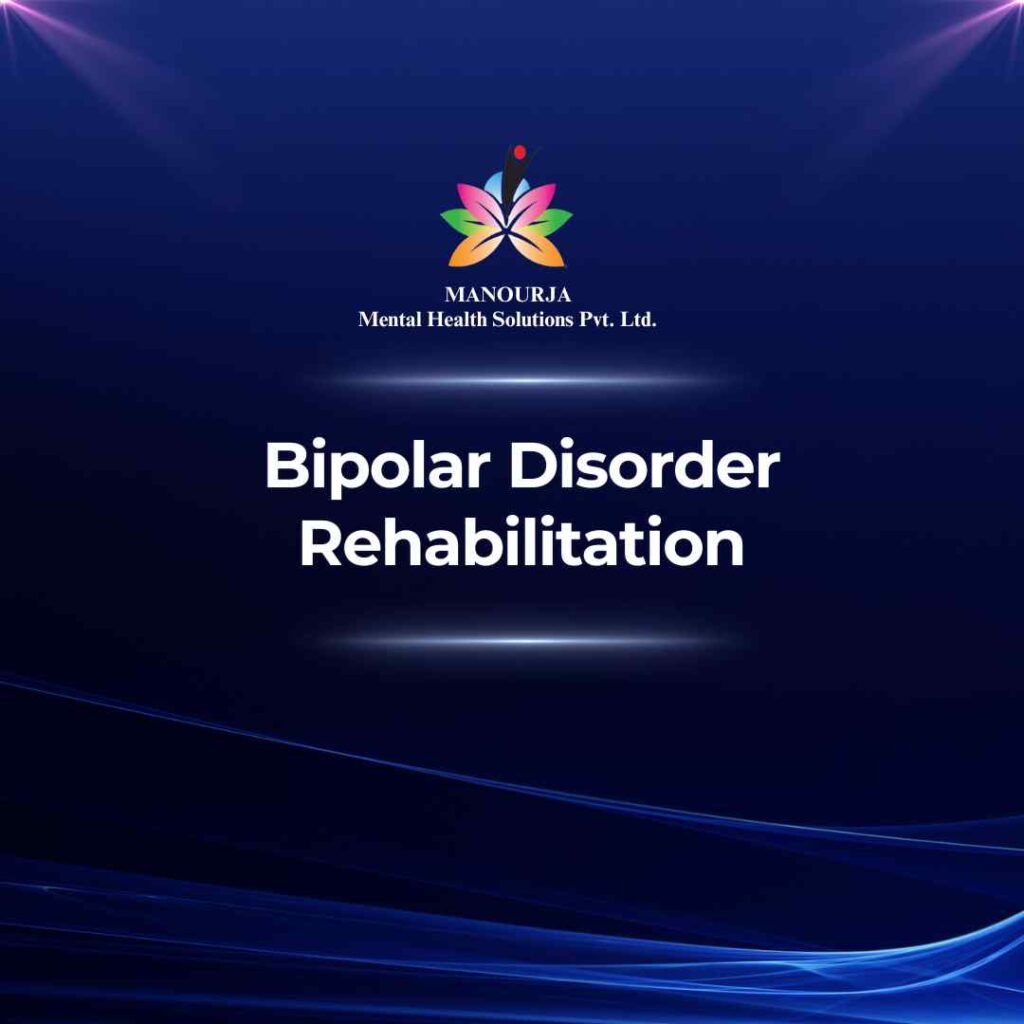Bipolar Disorder Rehabilitation

Individuals and their families should monitor for signs that indicate swings between mania and depression:
Manic Phase Symptoms
- Extremely elevated mood or irritability
- Excessive energy, agitation, and increased activity levels
- Decreased need for sleep without feeling tired
- Racing thoughts, fast speech, jumping from one idea to another
- Impulsivity and poor judgment, often resulting in risky behaviors
Depressive Phase Symptoms
- Prolonged sadness or unexplained crying spells
- Significant changes in appetite and sleep patterns
- Loss of energy, persistent lethargy
- Feelings of guilt, worthlessness, and helplessness
- Inability to concentrate, indecisiveness
- Recurring thoughts of death or suicide
Differentiating Between OPD and IPD
Outpatient (OPD) Psychosocial Rehabilitation
- Appropriate for: Individuals with mild to moderate symptom severity who do not pose an immediate risk to themselves or others.
- Benefits: Allows individuals to maintain their regular daily activities and support from family, helping integrate treatment routines into their home life.
- Support System: Effective when the patient has strong familial or community support that can encourage adherence to treatment plans and medication regimens.
Inpatient (IPD) Psychosocial Rehabilitation
- Necessary for: Severe cases of mania or depression where the individual may be a danger to themselves or others, or when symptoms are too severe to be managed in an outpatient setting.
- Benefits: Provides a structured environment with constant access to care and supervision, which can stabilize conditions more rapidly.
- Intensive Care: Suitable for individuals needing close medical monitoring, especially when adjusting medications or stabilizing acute symptoms.
Role of Psycho-social Rehabilitation in Treating Bipolar Disorder
Psycho-social rehabilitation focuses on helping individuals regain control over their lives and reduce the impact of the disorder on daily functioning by:
- Teaching Coping Strategies: For handling stress and emotional instability.
- Social Skills Training: To improve communication and relationships, which may be strained.
- Routine Establishment: Helping individuals establish a structured daily routine to stabilize mood swings.
Techniques and Approaches at MANOURJA
At MANOURJA, tailored approaches are used to address specific needs of bipolar disorder:
- Cognitive Behavioral Therapy (CBT): Targeting negative thought patterns and behaviors with the aim of altering mood and conduct.
- Family Therapy: Involving family members to educate them and improve their ability to support the patient.
- Medication Education: Ensuring patients understand their medications and the importance of adherence to prevent relapse.
- Life Skills Workshops: Providing training in financial management, job skills, and other daily activities to foster independence.
Steps in Psycho-social Rehabilitation at MANOURJA
- Assessment: Conducting thorough evaluations to identify specific needs and challenges.
- Goal Setting: Collaboratively setting achievable and meaningful goals with the patient.
- Customized Treatment Planning: Developing personalized treatment plans that address both psychiatric and psychosocial needs.
- Implementation: Executing the planned interventions, continually adapted as necessary.
- Continuous Monitoring: Regularly assessing the effectiveness of the treatment, making adjustments, and preparing for discharge and aftercare.
By differentiating between OPD and IPD, and providing comprehensive psycho-social support tailored to their specific symptoms and circumstances, individuals with bipolar disorder can achieve significant improvements in their quality of life and overall mental health stability.
“Remember, taking control of your journey is the beginning of your path back to balance.”
